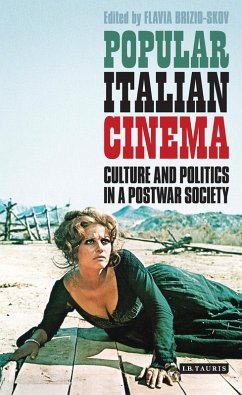With its monsters, vampires and cowboys, Italian popular culture in the postwar period has generally been dismissed as a form of evasion or escapism. Here, four international scholars re-examine and reinterpret the era to show that popular Italian cinema was not only in tune with contemporary political and social trends, it also presaged the turmoil and rebellion of the 1960s and 1970s. Their analysis of peplum (or 'sword and sandal') films, horror films, spaghetti westerns and comedy Italian-style shows how genre cinema reflected the changes wrought by modernization, urbanization, consumerist culture and the sexual revolution. With striking insights into the links between popular culture and politics, this book will be indispensable for specialists in film and media studies, Italian and cultural studies, as well as social history.
Dieser Download kann aus rechtlichen Gründen nur mit Rechnungsadresse in A, B, BG, CY, CZ, D, DK, EW, E, FIN, F, GR, HR, H, IRL, I, LT, L, LR, M, NL, PL, P, R, S, SLO, SK ausgeliefert werden.

